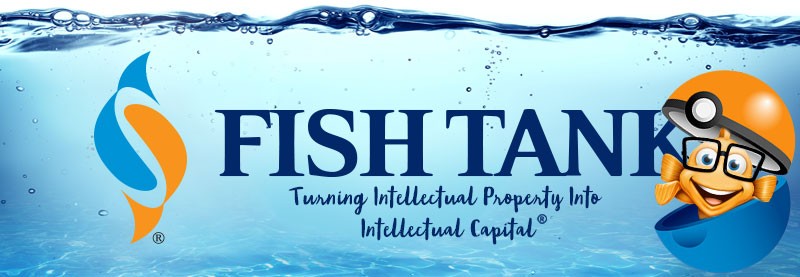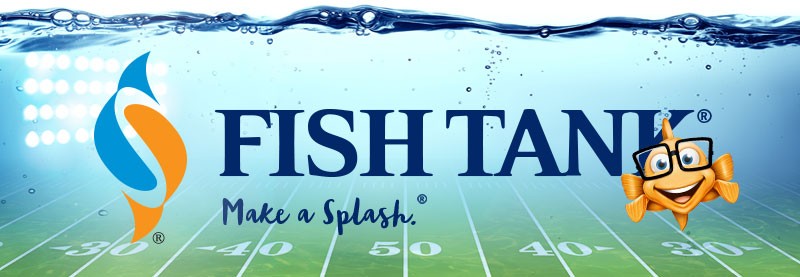Intellectual Property Insights from Fishman Stewart
Mini Article – Volume 23, Issue 22
Share on Social

Happy Small Business Saturday!
By Kristyn Webb
In today’s rapidly evolving business landscape, innovation is the lifeblood of small enterprises. Small businesses often generate groundbreaking ideas and inventive solutions that set them apart from the competition. However, amid the excitement of creating something new, it’s crucial to consider how to protect your intellectual property assets.
Why is IP Protection Crucial for Small Businesses?
1. Preserving Innovations: Your unique ideas and creations are your business’s essence. IP protection ensures that your innovations are safeguarded, preventing others from replicating or profiting from your hard work.
2. Building Credibility: Having IP protection enhances your business’s credibility and demonstrates your commitment to innovation. It adds value to your brand, making it more attractive to investors, partners, and customers.
3. Securing Investments: Investors are often more likely to invest in businesses that have protected their intangible assets. IP protection provides a sense of security, assuring investors that their investment is safeguarded from potential copycats and counterfeiters.
4. Preventing and Prevailing in Litigation: By securing your IP rights, you may reduce the risk of legal disputes related to intellectual property infringement. Legal battles can be financially draining and time-consuming, especially for small businesses. Where litigation is necessary to enforce your rights, having proper IP protection and registrations can enhance your chances of success in obtaining a favorable outcome.
5. Creating Revenue Streams: IP protection enables you to license your innovations to others, creating additional revenue streams. Licensing agreements can be a lucrative way for small businesses to monetize their inventions and expand their market reach.
How Can Small Businesses Protect Their IP?
Patents: Patent your inventions to protect new and useful processes, machines, products, or compositions of matter.
Trademarks: Register your brand name, logo, or slogan as trademarks to distinguish your products or services from others in the market. Federal registrations may be recorded with customs and border protection agencies in various countries to prevent the import and export of counterfeit goods. Clearance searches may help you avoid the pains of rebranding.
Copyrights: Copyright law protects your original literary, artistic, or musical works to prevent unauthorized reproduction or distribution. Often, registration with the US Copyright Office is required to bring an infringement lawsuit in federal court. The newly created Copyright Claims Board offers a cost-effective venue for smaller claims.
Trade Secrets: Safeguard confidential business information, such as formulas, processes, or customer lists, by implementing strict confidentiality agreements.
Regular Audits: Periodically review and update your IP portfolio to ensure all new innovations are adequately protected and update your employment agreements to reflect any changes in the law.
We understand the challenges faced by small businesses, and we encourage you to take proactive measures to protect your intellectual property. By doing so, you are not only securing your future but also contributing to the growth and innovation of your industry.
Stay innovative, stay protected!
Kristyn Webb is the Group Leader of Fishman Stewart’s Copyright Practice Group, and is currently earning a Master’s Degree in Copyright Law at King’s College London.

Published December 1st, 2023


Related Content from Fishman Stewart
In a recent decision, the U.S. Court of Appeal for the Eighth Circuit affirmed a jury verdict holding that the use of the "Success Kid" meme by a congressman's reelection campaign for fundraising purposes did not qualify as fair use.
In February 2024, proposed legislation was introduced in US House of Representatives which would extend copyright protection to golf courses. The bill is titled “Bolstering Intellectual Rights against Digital Infringement Enhancement Act” or the “BIRDIE Act”.
June is Pride Month, which honors the 1969 Stonewall Uprising in Manhattan and recognizes the impact that lesbian, gay, bisexual, and transgender (LGBTQ+) individuals have had on history locally, nationally, and internationally. The United States Patent and Trademark Office flies the Pride Flag and promotes the Pride community’s contributions with programming offered annually.
June is Pride Month. This year we are celebrating with some IP tips for drag performers! Drag performers can protect their intellectual property by registering the copyrights in their original works of music, choreography, and comedy sketches.
You’re rarely more than a few yards from Finny’s favorite chips, semiconductor chips to be precise. But what exactly is a semiconductor chip?
"May the 4th Be With You," also known as Star Wars Day, takes place annually on May 4th. The phrase is a pun on the iconic Star Wars catchphrase "May the Force be with you."
First, a big “thank you” to all our readers who have given feedback on our newsletter. We appreciate your interest and insights. It is always a treat to hear from you! Second, we wanted to provide you with updates on some of our most popular articles
“Palworld”— a computer game created and published by Japanese developer Pocket Pair. Released as an early access game in January 2024, it sold over seven million copies on the computer platform Steam in the first five days and had nearly 20 million players in the first two weeks.
This year’s Super Bowl featured a thrilling overtime victory for the Kansas City Chiefs over the San Francisco 49ers. With estimates as high as 123 million viewers, America's premier sporting event also serves as a grand stage for creativity and intellectual property protections that enhance the game’s success.
Valentine’s Day is just around the corner and jewelry sales are usually around $6 billion USD in the United States alone. In 2021, the US Customs and Border Protection agency seized over $1 billion USD worth of counterfeit pieces of jewelry.
IDENTIFYING, SECURING AND ADVANCING CREATIVITY®











